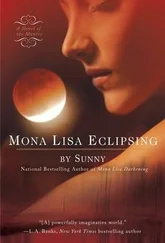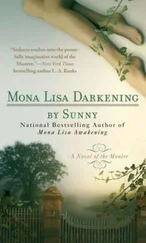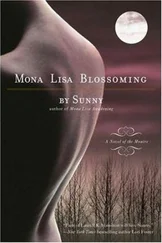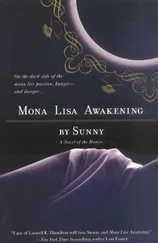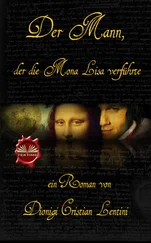I let go an amused, soft snort at the sight, and when I breathed in again, I noticed the sharp smell of cheap lavender. I had detected it before a few times at market on bawdily dressed, brightly rouged women, the sort that Zalumma always steered me away from.
I heard Francesco’s voice in my mind, saw his lecherous, glittering gaze. Whore. Slut. Harlot.
But as of that morning, I was a respectable married woman.
And I was free.
“I wasn’t able to sleep,” I said swiftly. “But I think I can now. Good night.”
“Good night,” Francesco said drowsily, and as I ran up the stairs, I heard him groan.
When I arrived back in my room, I closed the door behind me, leaned against it, and laughed so hard that I woke Zalumma.
S pring came, and the weather warmed. During the days, I opened the French doors and sat on the balcony. To my left were the stables, and the kitchen garden, bordered by hedges of lavender and rosemary. Directly before me lay a formal garden with cobblestone paths, young laurel trees, and carefully sculpted boxwood. In the mornings, I walked alone through the garden, past a roaring stone lion, his jaws releasing a cooling spray of water into a stone well. Beyond lay an arching trellis covered with thorny rosebushes, which led to a small grotto of the Virgin, her hands spread to welcome petitioners.
The child in my belly grew. By April, I had thickened unmistakably; the lines of my jaw, my cheeks softened. My nausea was replaced by a hunger so demanding that I kept plates of food beside my bed and often woke during the night to eat. Francesco doted on me like a parent; each day he instructed Agrippina to bring me a bucket of milk, frothy and still warm from the animal’s body.
My husband never touched me. We behaved toward each other like distant but cordial acquaintances; he gave me whatever I asked for. He did not protest when I ordered that a cot for Zalumma be put at the foot of my bed. But to a great extent, I was his prisoner: I was no longer to go to market. I could attend Savonarola’s sermons and, if I wished, go to our family chapel at Santissima Annunziata. All other outings required my husband’s express permission.
Francesco and I usually saw each other once daily, at supper. My father joined us. He seemed to take special joy in my company and brightened at any mention of the coming child. But he lost weight, so much so that I worried for his health; and when he sat at the table listening to Francesco, I detected a silent misery gnawing at him. I doubted he would ever be happy again.
Nor would I, though my life had not become as hellish as I had feared. Francesco heard Savonarola preach in the mornings and visited his whores at night; if he worried over the discrepancy between his public and private life, he did not show it. After a day of work at the bottega and the Palazzo della Signoria, where he served as a Buonomo, he relished his supper and his attentive audience. My father and I listened but said little as Francesco related the news of the day.
Many changes had come about because of Fra Girolamo, who had decided that God should be deeply involved in the workings of the Signoria. Laws were passed: Sodomy brought a fiery death at the stake, a low décolletage brought public disgrace and a fine. Poetry and gambling were outlawed. Adulterers quaked in fear of death by stoning. (Francesco related this with all seriousness; never mind that he was chief among them.) Men and women who dared sport jewels risked losing them, for the streets were now patrolled by young boys loyal to the friar and determined to seize any “unnecessary” wealth as a “donation” to the Church. Citizens ventured out furtively, worried that a thoughtless act might call attention to themselves, that a chance remark might be taken as proof of indifference toward God.
We all grew afraid.
Meanwhile, the Lord dictated that Florence should no longer be governed by the rich. He preferred a Great Council in the style of Venice, and if one was not created, He would smite the city. The Mother of God was also interested in politics. She appeared to the friar and spoke eloquently in Tuscan of the need for reform.
Savonarola began to preach vehemently against Rome and the scandalous behavior of Pope Alexander, who had brought his teenaged mistress to live with him in the Vatican.
Francesco taught me a new term: Arrabbiati, the mad dogs. These were the men who snarled at Savonarola, who said that a friar had no business meddling in politics. Francesco had nothing but disdain for them.
My father, who had once been an outspoken proponent of the friar, now smiled palely or frowned at the appropriate times, but said little. The fire had altogether left him, though he went with Francesco to hear Savonarola preach.
Talk of the prophet annoyed me. His sermons now excluded women-given that he spoke mostly of political matters-except on Saturdays, when he preached directly to members of the gentler sex. I was obliged to attend; my husband was a Buonomo, after all. Zalumma and I sat and listened in rigid silence.
But at times I spoke to God. I had forgiven Him, to some extent, after my father’s recovery. But I only prayed at our family chapel at Santissima Annunziata, where I was comfortable. I liked the fact that it was old, and small, and plain.
During this time, King Charles of France made his way to Naples, only to be ultimately defeated there. His army retraced its steps northward, passing unimpeded again through Rome, until at last it arrived barely two days’ ride from Florence.
Savonarola warned us all to repent, else God, in the form of Charles, would strike us down. At the same time, the friar went to Siena, heard Charles’s confession, fed him the Host, and threatened him in person with God’s wrath if he did not deliver Pisa into our hands.
Charles remained mute on the subject; Savonarola returned home without an answer, and we Florentines grew anxious as the French lingered in Siena.
I couldn’t trouble myself, however. I sat on my balcony and watched the white lilies bloom.
In May, a flood drowned all the tender young corn growing on the banks of the Arno. A sign of God’s displeasure, the prophet said; if we did not repent, He would send Charles next. I watched the laurel trees grow full and flutter, silvery, in the wind; I watched them bow to the gray rains.
In June, I stared out at the roses, vividly red against deep green; I inhaled their scent, carried on the breeze. Water flowed from the lion’s mouth with a soothing, repetitive gurgle.
August was sultry and I was miserable. I could not sleep because of the heat, because of the restless child, because of the ache in my back. I was uncomfortable lying down, sitting, standing; I could no longer see my feet, could not remove my own slippers, could hardly get up from the bed or a chair. My wedding ring grew so tight my finger ached. Zalumma generously applied soap, and when she finally succeeded in wrenching the ring off, I shrieked.
Zalumma and I counted. We expected the baby to arrive the first or second week of the month. By the last week, Zalumma was pleased-the child’s tardiness would only serve to convince Francesco it was his-but I was too desperate to appreciate my good fortune.
By the first of September, I was unpleasant to everyone, including Zalumma. I had given up coming down to supper; Francesco sent up small gifts, but I was too irritable to acknowledge them.
That week, on one particularly hot night, I woke abruptly, filled with a strange alertness. I was sweating. I had balled up my nightgown and pushed it beneath my pillow; the damp linen sheet clung so tightly to my belly that I could see the child stirring.
Читать дальше
Конец ознакомительного отрывка
Купить книгу





